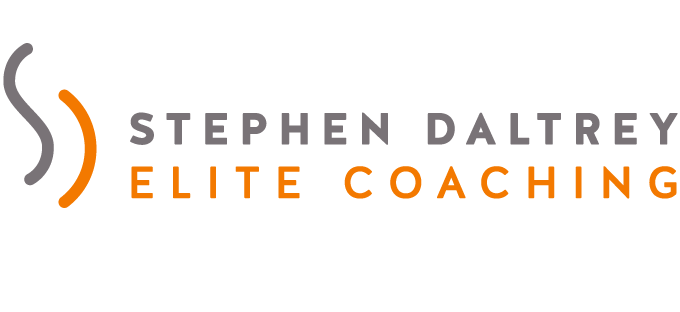 https://www.stephendaltrey.com/wp-content/uploads/2024/05/typewriter_1500x1000.jpg
1000
1500
16kadmin23
https://www.stephendaltrey.com/wp-content/uploads/2022/08/StephenDaltrey_logo_2_680x312.png
16kadmin232024-05-03 13:06:442024-05-03 13:29:11Transforming Leadership Series #6 – Words Matter
https://www.stephendaltrey.com/wp-content/uploads/2024/05/typewriter_1500x1000.jpg
1000
1500
16kadmin23
https://www.stephendaltrey.com/wp-content/uploads/2022/08/StephenDaltrey_logo_2_680x312.png
16kadmin232024-05-03 13:06:442024-05-03 13:29:11Transforming Leadership Series #6 – Words MatterTurn on, Tune in but don’t Drop out
The powerful tool to turbocharge your relationships
Timothy Leary’s “Tune In, Turn On, Drop Out” mantra defined the 1960’s Hippie counterculture movement. The phrase was a call for people to drop out of the mainstream consumer culture and tune in to themselves.
I believe that by not just tuning into ourselves, but learning to tune into other people and the space between you, can turbocharge relationships in all areas of life.
During our daily lives, we constantly meet people we want to connect with and build some form of relationship with (be that work, business or personal). Imagine an AI programme into which you fed a person’s details, and it generated a list of many things about them that you didn’t already know. Imagine if the programme could then suggest how to best connect with them to achieve your own goals. Wouldn’t that be a powerful tool?
That particular development may be somewhere down the road, but the good news is you ALREADY possess it right now because YOU are the perfect instrument to achieve those outcomes. I know this because I’ve achieved it, and you can too.
I trained for nine years as a Gestalt psychotherapist and person-centred counsellor. In addition, I invested in 12 years of individual therapy and 6 years of group therapy. I learned powerful techniques to connect with and understand myself and others at a deep level. If you’d like to develop these skills, it boils down to one word: NOTICE.
Gestalt psychology talks about ‘the self as an instrument’. We use our sense of ourselves and others to inform us, moment-by-moment, how to connect with others from our unique and individual perspective.
Try it out for yourself
Before your next meeting, NOTICE what you are thinking & feeling about the other person. Are you energised, are you neutral, are you flat? As you begin to focus, notice what images or memories emerge. What judgements or assumptions are you making about them? As you walk towards them, what do you notice about them? Are they energised or disengaged? Do they greet you warmly or with indifference? Notice what’s happening inside you as you connect with them.
As the meeting progresses, keep three things in mind –
· Notice what’s happening with them
· Notice what’s happening with you
· Most importantly, notice what’s happening within the space between you, i.e. the relationship
What’s happening with them?
Is their body language open or closed? When does it change? Do they lean in or out, and when does that change? Are they making eye contact? What topics energise them, and which don’t seem to impact them? How are they responding to you personally? How do they treat others, i.e. colleagues or the waiter? Can you gauge their Attitudes, Values, Beliefs and Assumptions? How can you endorse their values or possibly challenge some of their beliefs?
What’s happening with you?
What do you see, hear, think & feel in relation to them? Are you focused on them and their agenda, only your own agenda or both? What judgements and assumptions are you making? Can you check these out in real-time, e.g. “I’m guessing from what you said that you are not keen on Project X”? They are likely to respond clearly, and this gives you accuracy. How is your body language? Are you mirroring them as a sign of natural rapport, or are they reflecting you? What feelings and emotions are you experiencing? What’s your sense of the environment? Is it warm, cold, neutral (this could be a clue to the organisational culture)? Is your head empty enough to hear and experience them, or are you too busy with your own ‘stuff’? How can you clear your head to focus and notice?
Finally, what’s happening in the space between you, the relationship?
Is it distant? Is it growing? Did your last comment build on the relationship or provide a temporary jar? Is the temperature hot or cold? What can you do to make it warmer? Which topics create mutual trust etc.?
As you can see, a lot is going on beyond the words that most people miss. Success is about NOTICING both the process (how you interact and your three areas of focus) and the content of the meeting. It’s the soft and hard stuff; you need to be aware of both.
My years of therapy enable me to tune into myself and others, using the information to enhance my relationships with my coaching clients and the wider world. You too can develop these skills by investing in your personal growth and self-awareness. Imagine the clarity you would obtain and the enhanced relationships you can achieve.
Nature has already given you a range of very powerful tools. You simply need to turn on and tune into them, making sure you don’t drop out. In my next article, I’ll share some powerful techniques on how you can go deeper into the process.








 Photo by Neil Thomas
Photo by Neil Thomas Photo by Jay Shah on Unsplash
Photo by Jay Shah on Unsplash
Leave a Reply
Want to join the discussion?Feel free to contribute!